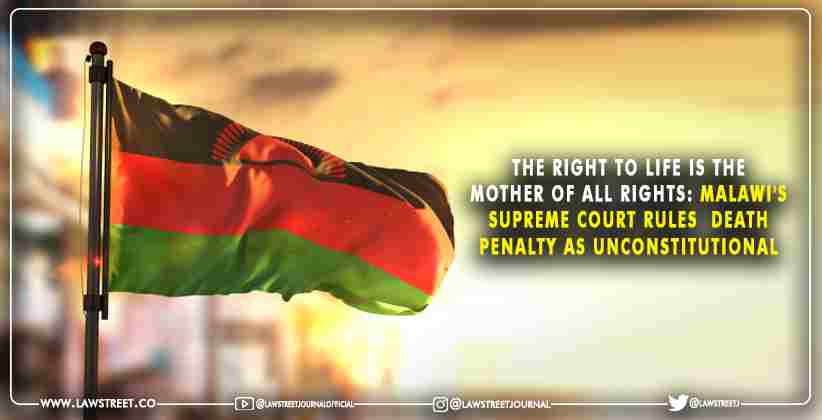Death penalty has been declared unconstitutional by Malawi's Supreme Court of Appeal.
The Court stated in its decision, "The right to life is defined by the sanctity of life itself. The right to life is the most important of all. Other rights do not exist without the right to life. The death penalty not only negates but also eliminates the right to life."
The court made this observation while granting an appeal filed by a man named Khoviwa, who had been sentenced to death. The majority judgment, authored by Justice D F Mwaungulu, notes that the Malawian Constitution does not provide for the death penalty; rather, it prohibits derogation from the right to life.
The Judgement reads, "The Constitution forbids derogation from the right to life in a direct and unequivocal manner. The essence of sections 25, 26, and other sections that prescribe the death penalty for criminal offenses are derogations from the right to life - life itself, life in all its sanctity. The death penalty is prohibited under section 45 (1) of the Constitution, Malawi's supreme law, because it is a derogation from the right to life. Surprisingly, when the legislature amended section 25 of the Penal Code in 2011, it removed corporal punishment, despite the prohibition in section 19 (2) (b) of the Constitution, and kept the death penalty, despite the fact that there could not be a derogation from the right to life under section 45 (1) and (2) (b) of the Constitution. This could only be based on the assumption that section 16 of the Constitution was 'sanctioning' the death penalty in the proviso. For a variety of reasons, some of which have already been stated, that inference is untenable."
Sections 38 (1) (for treason), 63 (1) (for piracy), 133 (for rape), 210 (for murder), 217A (2) (a) (for genocide), and 309 (1) and (2) (for housebreaking and burglary, respectively) of the Penal Code must be interpreted as meaning the maximum prison sentence - life imprisonment.
The Court said, If life imprisonment becomes the maximum sentence where it is not mandatory, it cannot be imposed, as if it were reserved for the most heinous crimes. As a result, courts are likely to impose a lengthy prison sentence. Those who have served long periods of time or have served long sentences are more likely to receive shorter sentences or be released immediately."
(In Charles Khoviwa vs The Republic MSCA)








